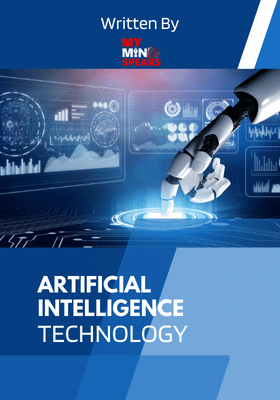Table of Contents
Introduction:
Technology is constantly evolving and changing the way we live and work. Every year, new technologies emerge that have the potential to revolutionize industries and change the way we do things. In this article, we will explore some of the new technologies that are making waves in the industry and discuss their potential impact.
How do you learn new technologies?
Before delving into the new technologies, it’s worth noting that learning new technologies can be a challenging and overwhelming task. However, with the right approach and resources, it can be made easier. The first step is to identify the technology you want to learn and then find relevant courses, books, and online resources. Additionally, joining online communities and attending conferences can provide valuable insights and connections.
Types of new technologies
Artificial Intelligence:
Artificial Intelligence (AI) is a rapidly growing field that aims to create intelligent machines that can learn and adapt like humans. AI has the potential to revolutionize various industries, from healthcare to finance. AI-powered systems can help automate tasks, improve efficiency, and make better decisions. For instance, AI-powered chatbots can provide personalized customer service 24/7.


Blockchain:
Blockchain is a decentralized, digital ledger that records transactions in a secure and transparent way. Blockchain technology is best known for its use in cryptocurrencies such as Bitcoin. However, its potential applications go beyond that. It can be used to create secure digital identities, track supply chains, and reduce fraud.
5G:
5G is the fifth generation of wireless technology that promises to offer faster speeds, lower latency, and greater capacity. 5G networks will enable new technologies such as autonomous vehicles, remote surgery, and virtual reality. Additionally, 5G can enhance the performance of IoT devices and provide a more reliable and secure network.


Augmented Reality (AR) and Virtual Reality (VR):
AR and VR are technologies that blur the line between the physical and digital world. AR adds digital elements to the real world, while VR creates a simulated environment. These technologies have the potential to revolutionize industries such as education, healthcare, and entertainment. For example, AR can be used in medical training to simulate surgical procedures.
Quantum Computing:
Quantum computing is a new type of computing that uses quantum bits (qubits) instead of binary bits (0s and 1s). Quantum computing has the potential to solve complex problems that are beyond the capabilities of classical computers. It can be used to accelerate drug discovery, optimize logistics, and improve cryptography.

A new technology that will change the world:
One technology that has the potential to change the world is CRISPR-Cas9. CRISPR-Cas9 is a gene editing technology that enables scientists to modify DNA sequences. This technology has the potential to cure genetic diseases and improve crop yields. However, it also raises ethical and safety concerns.
FAQs:
What is new technology?
New technology refers to any innovation or invention that has been recently developed and has the potential to disrupt industries or change the way we live and work.
What’s new in technology?
Some of the new technologies include AI, blockchain, 5G, AR and VR, quantum computing, and CRISPR-Cas9.
What effect does new technology usually have on an economy?
New technologies can have a significant impact on the economy. They can create new industries and job opportunities, increase productivity and efficiency, and drive economic growth. However, they can also lead to job displacement and widening income inequality.
How can the use of new technology in industry benefit?
The use of new technology in industry can benefit in several ways. It can improve efficiency, reduce costs, enhance customer experience, and enable new business models. Additionally, it can provide valuable insights and improve decision-making.
What is the new AI technology?
There are many new AI technologies emerging, but some of the most promising ones include natural language processing (NLP), machine learning (ML), deep learning, and reinforcement learning. These new AI technologies have the potential to revolutionize various industries and change the way we live and work.
Conclusion:
New technologies are emerging at a rapid pace and have the potential to revolutionize industries and change the way we live and work. From AI and blockchain to 5G and AR/VR, each technology offers unique opportunities and challenges. While the benefits of these technologies are undeniable, it’s crucial to consider their impact on society, ethics, and safety.
Learning new technologies can be overwhelming, but with the right approach and resources, it can be made easier. Joining online communities, attending conferences, and finding relevant courses and books can all help in the learning process.
As we move forward, it’s important to consider the role of new technologies in the economy and how they can be used to benefit society as a whole. With proper planning and implementation, new technologies can create new industries and job opportunities, increase productivity and efficiency, and drive economic growth.
In conclusion, we must continue to embrace new technologies while remaining mindful of their impact and ensuring they are used ethically and responsibly. Only then can we fully realize the potential of these technologies and create a better world for everyone.






























